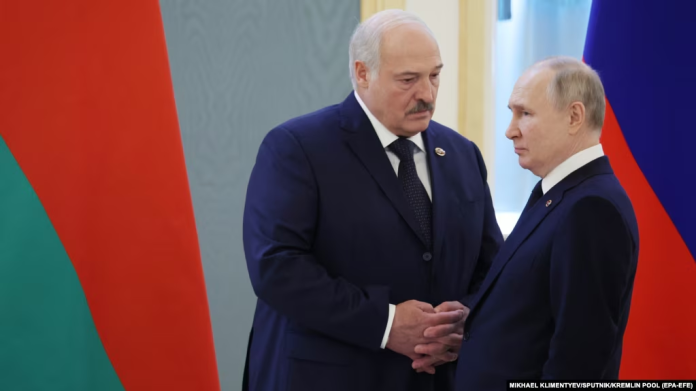The Council of the European Union adopted a new package of sanctions against the Belarusian economy to restrict the republic as a transit route for sanctioned goods, according to bne IntelliNews.
On 30 June, the EU also raised tariffs on grain imports from Russia and Belarus to Europe by up to 50 per cent. The bloc aims to limit Europe’s dependence on grain and make room for more grain imports to Europe from Ukraine.
The Council today adopted restrictive measures targeting the Belarusian economy, in view of the regime’s involvement in Russia’s illegal, unprovoked and unjustified war of aggression against Ukraine. These comprehensive measures aim at mirroring several of the restrictive measures already in place against Russia, and thereby address the issue of circumvention stemming from the high degree of integration existing between the Russian and Belarusian economies.
Belarus declared its readiness to use non-strategic nuclear weapons if its sovereignty and independence were threatened. This was stated by Belarusian First Deputy Defence Minister and Chief of the General Staff Pavel Muraveiko on 30 June.
One of the last arguments and theses, which serve as a restraining factor is the re-deployment of non-strategic nuclear weapons in our country. We have learnt how to handle these weapons, we can use them confidently and we are capable of doing so. You can be sure, we will do this if our country’s sovereignty and independence are at risk.
The Council’s decision extends the ban on exports of dual-use goods and advanced technologies to Belarus. Additional restrictions will affect the export of goods that can increase the industrial potential of Belarus, maritime shipping, and luxury goods, including high-end European cars, which still reach Moscow via Minsk.
Other sanctions
The EU will ban the direct or indirect import, purchase or transfer from Belarus of gold, diamonds, helium, coal, and mineral products, including crude oil, originating from Russia. This measure is complemented by a new ban on exports to Belarus of goods and technologies suitable for use in oil refining and natural gas liquefaction.
The Council also prohibits the provision of certain services to Belarus, its government, public bodies, corporations, or agents, as well as to any natural or legal person acting on their behalf or under their direction. These include accounting, architectural, and engineering services, advertising and market research services.
The decision is part of the latest 14th package of sanctions against Russia, which increasingly includes Belarus as a proxy for Russia. The sanctions require EU exporters to include a “no-Belarus clause in their future contracts.” The clause prohibits the re-export to Belarus or for use in Belarus of critical goods and technologies, military goods, firearms, and ammunition.
Despite extreme sanctions, Western technology sanctions have largely failed to prevent Russia from importing machinery and electronics. To minimise the risk of circumventing the sanctions, the EU will prohibit the transit through Belarus of dual-use goods and technologies, goods that could contribute to Belarus’ military-technical improvement, and goods that could strengthen its industrial potential.
Russia and Belarus
On 24 June, the EU Council adopted a fourteenth package of economic measures, which also includes separate restrictive measures against Russia. For the first time since the outbreak of the war in Ukraine, these measures include sanctions against Russian gas.
In parallel, sanctions on grain imports from Russia and Belarus to the EU came into effect on 30 June, raising tariffs in an attempt to encourage more grain imports to Europe. Under a European Council regulation of 30 May, tariffs were increased to 50% of the market price for certain types of grain.
The new tariffs effectively ban imports of grain, sunflower seeds, and feed crops from Russia and Belarus. European Commission Vice President Valdis Dombrovskis called them “prohibitively high.” The Council also noted that the tariffs did not apply to the transit of grain to third countries through European ports.
While the EU strategy aims to support Ukraine’s agricultural exports and stabilise local markets, it also risks further overburdening port capacity and the wider European food supply chain. However, the full impact of these tariffs on the European and Russian agricultural sector needs further observation.
